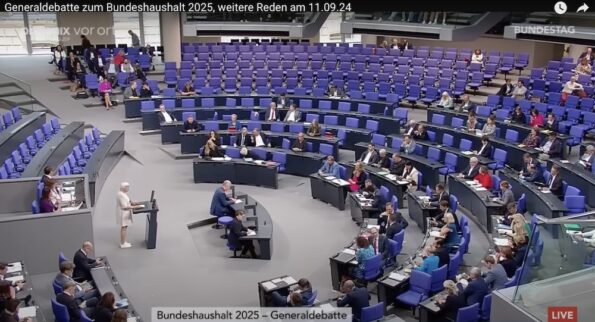Search
To search for an exact match, type the word or phrase you want in quotation marks.
A*DESK has been offering since 2002 contents about criticism and contemporary art. A*DESK has become consolidated thanks to all those who have believed in the project, all those who have followed us, debating, participating and collaborating. Many people have collaborated with A*DESK, and continue to do so. Their efforts, knowledge and belief in the project are what make it grow internationally. At A*DESK we have also generated work for over one hundred professionals in culture, from small collaborations with reviews and classes, to more prolonged and intense collaborations.
At A*DESK we believe in the need for free and universal access to culture and knowledge. We want to carry on being independent, remaining open to more ideas and opinions. If you believe in A*DESK, we need your backing to be able to continue. You can now participate in the project by supporting it. You can choose how much you want to contribute to the project.
You can decide how much you want to bring to the project.

For this edition of A*DESK, we ask ourselves: What is happening to cultural politics in times of global political change?
We are living in a time marked by the rise of right-wing and conservative parties and in a time when some left-wing parties cling to power, at times exceeding constitutional limits. In many countries, citizens see how their government fails to solve essential problems, such as the rising cost of living, the deterioration of public infrastructure, migration, the decline of local industry, and the growing tax burden of supporting social services.
In this context, a segment of the population has found an echo of their frustration in populist politics. At the same time, the climate crisis looms, and the years of security and economic growth that characterized the post-Cold War period have come to an end in a way that Fukuyama never imagined.
The number of global conflicts has increased. Globalization, with all its flaws, has given way to “regional spheres of influence,” that is, local strategies that make countries less vulnerable to supply chain disruptions. At the same time, the discourse of energy self-sufficiency is resurfacing, and militaristic rhetoric is back, allocating part of the national budget to the arms industry. Desperate citizens become the soldiers of the future, cannon fodder for increasingly lethal drones and artificial intelligence systems.
In the postwar period, artists and cultural producers tended to act in favor of pluralistic and socially equitable societies. Unlike the arms-fueled fervor of European artists during the First World War, contemporary cultural production is characterized by pacifism. For decades, an equilibrium was maintained between cultural policies and the work of creative people within a framework where democratic governments funded artistic programs that strengthened democracy.
However, that relationship has changed. Today, budget cuts for culture are the first sign of a deeper global change in which the foundations of the development of solid cultural politics have weakened. Faced with this new reality, the question arises: How should we act when the relationship between culture and the State no longer guarantees effective support?
Ximena’s text explores these transformations in the context of Mexico City. With wit and humor, she describes the everyday paradoxes of residents trapped in the processes of gentrification brought on by digital nomads (mostly gringos) while the US government declares Mexico an “enemy.”
Ximena describes Mexican artistic responses embedded in current State policies. Monumentalism becomes a dark parody, a return to Mexican nationalism thanks to 3D printers. Curiously, days after sending her text to the publisher, anti-gentrification protests erupted in front of the MUAC (Museum of Contemporary Art), and some of the protesters vandalized the building, almost like an oracular act anticipated in the ideas of her text.
For many years, Giuseppe Ramírez has observed the development and implementation of cultural policies in Colombia. Due to the scarce amount of resources allocated to culture, few consider it an important object of study. Giuseppe’s observations offer a valuable resource for understanding national cultural politics as his text lays the groundwork for developing a new paradigm that goes beyond the soft power of the Cold War and the traditional “State-culture” relationship, inviting the reader to imagine cultural politics that produce meaning.
The role played by artists is an important aspect for understanding the implementation of cultural policies. Hernán Borisonik critically analyzes the current processes of subjectivation that are taking place in the art world. Hernán identifies many key topoi in this process. In particular, by pointing out that there has been a shift from the “activist” artist to the artist creator/manager/designer of identities, we can see what this shift implies for current cultural politics when operating in zones of affective capitalism.
I chose to round out this discussion with a fourth text that describes the dissolution of the relationship between State and culture through a historical review of the objectives of cultural policies. However, I feel that this text could be what Giuseppe would call “presumptive.” Beyond the inaccuracy of assertions made about historical events, however, my text seeks to recognize that the current state of cultural politics is beyond the positions of the Left and Right in terms of the role of culture. The lack of knowledge and discussion about new political currents and the investigation of the role of ideology in the era of Silicon Valley within the art world makes it difficult to determine the field of possibilities for the modifications of the State-culture relationship.
[Featured image: Session of the German Bundestag (Bundestag) on September 11, 2024, regarding the 2025 federal budget for culture, with the chamber almost empty. Former Minister of Culture and Media Claudia Roth of the Green Party is on the podium. Screenshot from https://www.youtube.com/watch?v=E_UPBI5isBM]

Jorge Sanguino, born in Cali, Colombia, is a curator and gallerist based in Düsseldorf, Germany. He holds a Philosophy degree from Universidad Javeriana in Bogotá and a Master’s in History of Art and Image from Humboldt University, Berlin, specializing in photography and contemporary Latin American art. Currently pursuing his doctorate at the University of Cologne, his research focuses on Mexican art in the 1990s. He also serves on the board of Zadik, supporting German and international art market research. He is currently advising Prof. Buchholz (Northwestern Uni) in her research on the Mexican art market. In 2016, Sanguino co-founded wildpalms with Alexandra Meffert. Sanguino contributes regularly to Esfera Pública and Artishock. (Photo: Zadi)
"A desk is a dangerous place from which to watch the world" (John Le Carré)